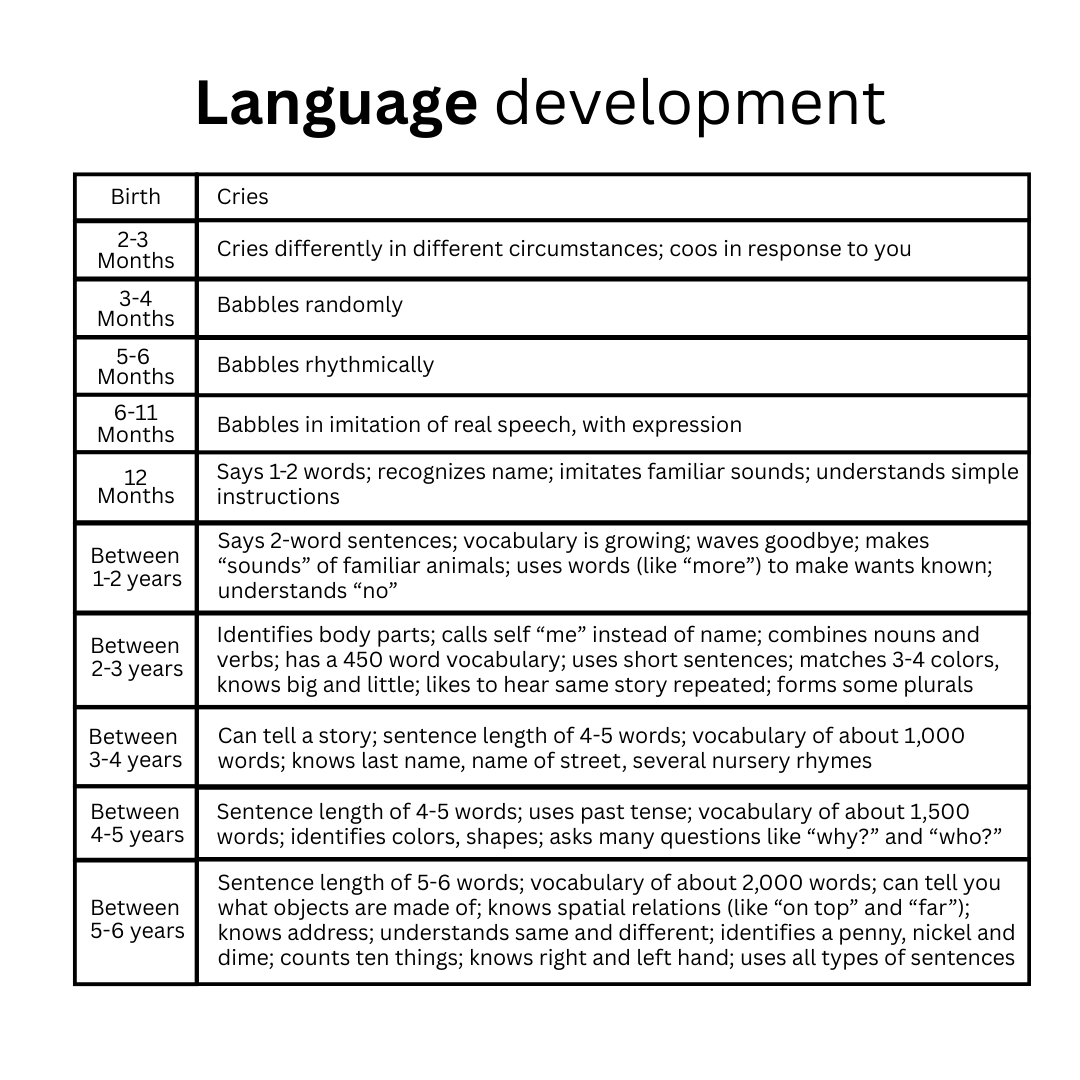Speech & Language Development
If your child is not on track with the following speech/language development milestones, you should talk to your pediatrician or reach out to a speech-language pathologist.
If your child is not meeting the following milestones, the first step is to get his/her hearing checked. Even if kids seem to hear just fine, they are experts at picking up visual cues to get by. It’s important to catch hearing loss early for treatment, or eliminate it as a concern altogether.
If you have concerns regarding a possible speech or language delay, it’s important to seek help early. The earlier your child gets help, the greater his/her progress will be. It is difficult to know for certain if a child is a late bloomer or has a delay; however, if he/she is a late bloomer, the extra attention to their speech will not have hurt in any way.

